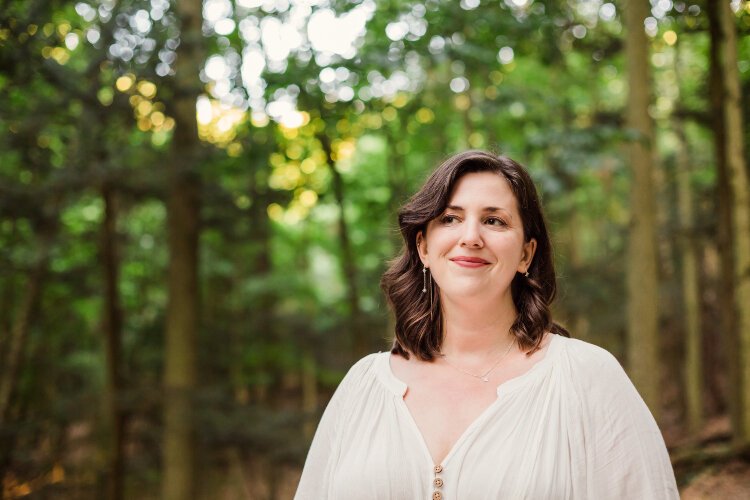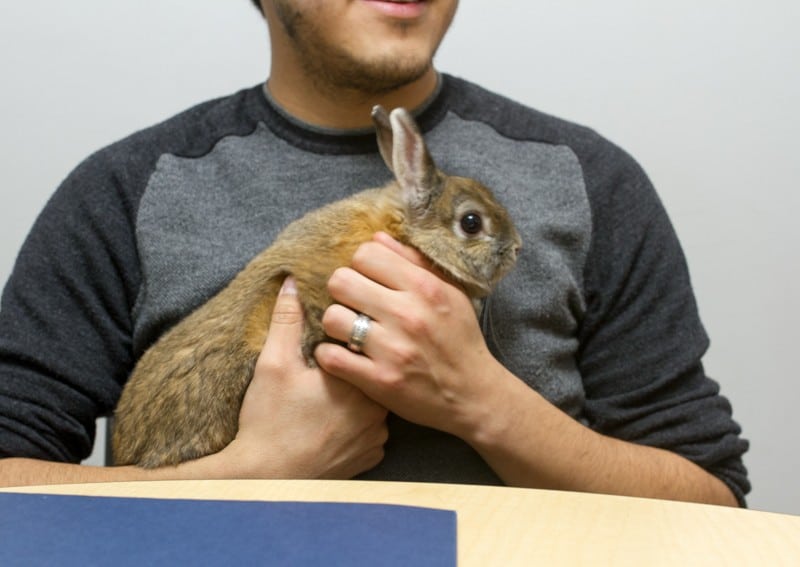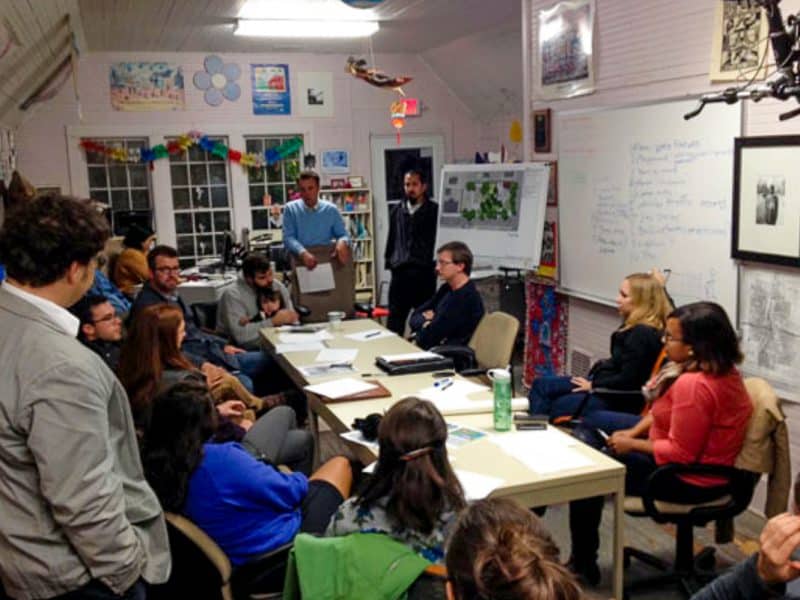GR author talks about memoir on surviving Christian patriarchy movement
Cait West, co-host of the “Survivors Discuss” podcast, talks about experiences detailed in her memoir, “Rift: A Memoir of Breaking Away from Christian Patriarchy.”

Raised in the Christian patriarchy movement, Cait West was homeschooled and expected to live at home after she turned 18, until her father allowed her to marry a man he chose for her – no college and definitely no career. She was trained to serve the men around her, and her life would never be her own.
Now a writer and editor based in Grand Rapids, West describes herself as a survivor of the Christian patriarchy movement. She serves on the editorial board for Tears of Eden, a nonprofit that provides resources for survivors of spiritual abuse, and co-hosts the “Survivors Discuss” podcast.
Growing up, she was told she was set apart, holy, and belonged to God. In her mind, she was blessed. She followed the rules and judged anyone who didn’t live by the same black-and-white beliefs. She knew that if she disobeyed, she would be cast out forever. But as she grew older, something deep inside told her this wasn’t how life was supposed to be.

Cait West’s “Rift A Memoir of Breaking Away from Christian Patriarchy.”
Her memoir, “Rift: A Memoir of Breaking Away from Christian Patriarchy,” published by Eerdmans, a more than century-old Christian publisher. The book tells her story of resisting and escaping the life her ultra-conservative Christian parents planned for her. With compassion and clarity, West explores the complex legacy of patriarchal religious trauma in her life and the years of emotional, spiritual and financial abuse she endured.
A chance to tell own story
“‘Rift’ is my story of growing up on the fringe of evangelical purity culture in a movement that takes the concept of patriarchy to its extreme, stripping women of their agency and making them complicit in their own demise,” West shares with Rapid Growth.
“It is also a story of how I broke away and found myself, only to realize that patriarchy is far-reaching and not fringe at all. I wrote this to create something of my own, to take the pen back and tell my own story. I wrote this for the little girl who didn’t know how to use her voice, and for all those who have gone through something similar and who need to hear they’re not alone.”
Rapid Growth connected with West for a Q&A about her newly released memoir and the experiences she writes about.
Rapid Growth: Tell us about yourself. Where did you grow up, and how did you get to Grand Rapids and become a writer?
Cait West: I was born into a conservative Christian family and was baptized as a baby. When I was 5, my parents decided to homeschool me for religious reasons. My family never lived in one place for more than a few years, due to my father’s work, and we lived in Delaware, Pennsylvania, Colorado, and Hawaii.
Over the years, we became more involved in the Christian patriarchy movement, which taught that men are created to be leaders and women to be helpers to their fathers and husbands. As a girl in the movement, I became a “stay-at-home daughter,” not allowed to move out of the house when I turned 18, forbidden from college and the pursuit of a career. After realizing how I was being spiritually abused and prevented from having my own agency, I eventually moved out when I was 25, settling in West Michigan.
I needed to get away from my abusive home, and Michigan made the most sense because it was where my fiancé (now husband) was from. We were getting married against my father’s wishes, and we needed a place to start over. I started going to college to study writing because I wanted to pursue my own dreams for the first time in my life, and that’s how I found my voice to tell my story. These days, I work as an editor for a book publishing company and recently published my memoir, “Rift.”
RG: Tell us about your podcast, “Survivors.” What led you to start it and what has been the impact of these conversations?
CW: My friends and fellow survivors Clare Heath-McIvor and Shari Smith had the idea to start the podcast when the documentary “Shiny Happy People” came out, and they invited me to co-host with them. We hold panel discussions with experts and survivors about topics such as complex post-traumatic stress disorder, purity culture, and female empowerment. The hope is that we will help other survivors of religious abuse feel less alone and point them to resources. It has also been such a healing experience for me to have these conversations.
RG: Your memoir is deeply personal. You write on growing up in the Christian patriarchy as a stay-at-home daughter who was expected to stay at home, even after you were 18, until you married, presumably a man your father selected and approved of. When did you realize you wanted something different?
CW: I always had secret desires, like wanting to go to public school or college, but I repressed them because I knew they were not an option in the restrictive world I was living in. But when I went through my first courtship (the alternative to dating that we practiced), I learned just how much my father could control my future. After my father broke off the courtship, I was heartbroken, but instead of being sympathetic, he told me that I needed to repent for my sin of emotionally cheating on my future spouse. I knew then that this was wrong, and I realized if there was a God, they wouldn’t condemn me to hell for loving someone. I made a decision to never let my father control any future relationship I would have again.
RG: What has been the response to your book, which explores the impact of the Christian patriarchy movement on young women?
CW: I have been pleasantly surprised by the generous reception of the book. Telling one’s story of being abused is not easy, and there is always the fear that you will be rejected or not believed. And while I’ve experienced my fair share of internet trolls, for the most part I feel that the book is finding the people who need it the most. They’ve shared with me that they feel seen and that they have language now for their own experiences. This was always my primary goal, so I’m thrilled.
RG: What do you hope readers take away from your memoir and why do you think your story might have a universal appeal?
CW: I hope those who have experienced spiritual abuse, high-control religion, or family estrangement will feel less alone because there are so many of us learning to heal after these experiences. I also hope those who have not experienced these things will learn how to empathize with those who have, as well as become aware of the red flags of abuse so that we, as a society, are better at preventing it and holding abusers accountable. Even those who say they didn’t grow up exactly like I did are finding my story relatable because patriarchy is built into our society. We still have much work to do.








